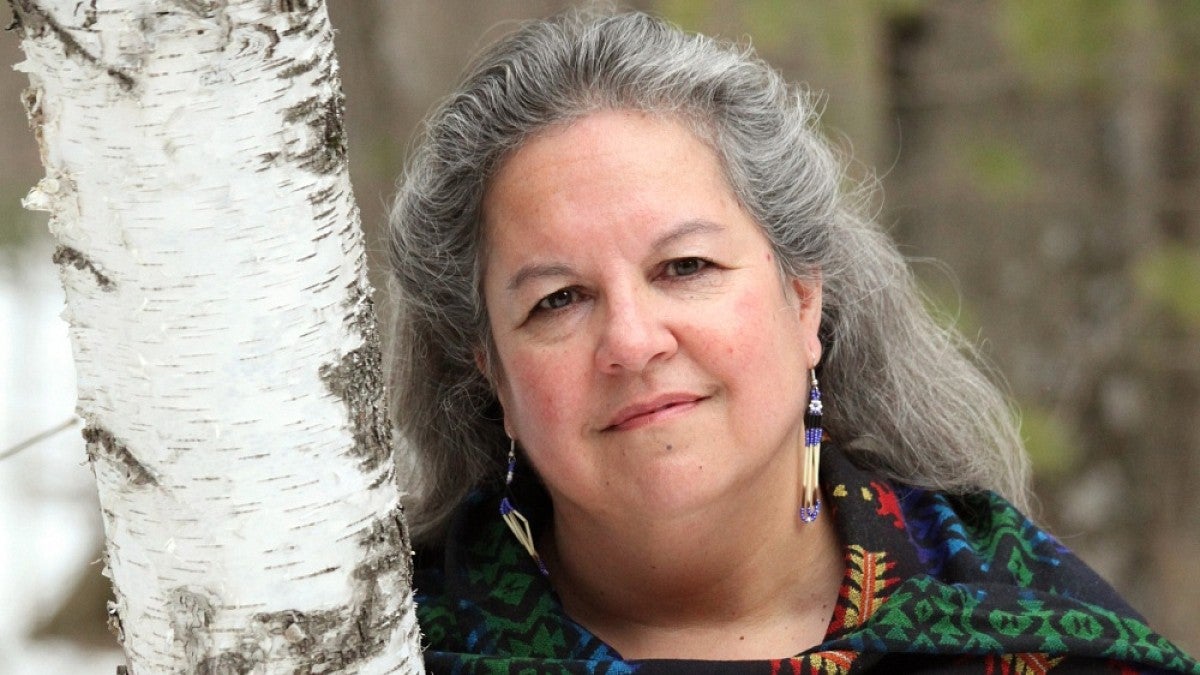Plant ecologist and writer Robin Wall Kimmerer will discuss the role of indigenous people in debates over the future of public lands in the Oregon Humanities Center's 2017–18 Robert D. Clark Lecture.
The talk, titled “‘We the People’: Expanding the Circle of Citizenship,” will take Tuesday, March 13, at 7:30 p.m. in Room 182, Lillis Hall.
In describing her talk, Kimmerer said, “Current debates on the future of public lands call for a focus on who is included in the ‘public.’ Who is inside the circle and who is not? Whose voices are heard, and whose are silenced?
“Indigenous people have largely been excluded from decision-making involving public lands — as has their sophisticated environmental philosophy and practice, derived from traditional ecological knowledge. How might the indigenous concepts of the personhood of nonhuman beings expand our notion of the public good? This talk will explore facets of how respectful engagement with indigenous knowledge might re-draw the boundaries of ‘We, the People’ as we consider our relationship to ancestral ‘public’ lands.”
Kimmerer is a Distinguished Teaching Professor at the State University of New York College of Environmental Science and Forestry in Syracuse. She is also the founding director of the Center for Native Peoples and the Environment, whose mission is to create programs that draw on the wisdom of both indigenous and scientific knowledge for the shared goals of sustainability.
Her research interests include the role of traditional ecological knowledge in ecological restoration and the ecology of mosses. In collaboration with tribal partners, she and her students have an energetic research program in the ecology and restoration of plants of cultural significance to native people.
She is active in efforts to broaden access to environmental science education for native students and is engaged in programs which introduce the benefits of traditional ecological knowledge to the scientific community in a way that respects and protects indigenous knowledge.
As a writer and scientist, Kimmerer’s interests in restoration include not only restoration of ecological communities but also restoration of relationships to land. She is the author of numerous scientific papers on the ecology of mosses and restoration ecology, and on the contributions of traditional ecological knowledge to the understanding of the natural world.
In addition to her scientific writing, Kimmerer is also the author of numerous literary essays and two books, “Braiding Sweetgrass: Indigenous Wisdom, Scientific Knowledge and the Teachings of Plants,” which was awarded the Sigurd Olson Nature Writing Award, and “Gathering Moss,” which incorporates traditional indigenous and scientific perspectives.
Of European and Anishinaabe ancestry, Kimmerer is an enrolled member of the Citizen Potawatomi Nation. She lives on an old farm in upstate New York, tending gardens both cultivated and wild.
The lecture, part of the 2017–18 “We the People” series, is free and open to the public and will be followed by a book sale and signing. For more information, or for disability accommodations, which must be made by March 6, contact 541-346-3934 or ohc@uoregon.edu


